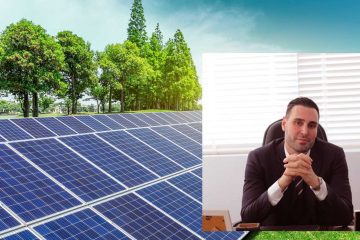Solar Energy System as businesses globally embrace renewable energy sources, solar power is popular. However, the selection of an ideal solar energy system for your office can seem like a daunting task. This guide will demystify the process and steer you in the right direction.
Understand Your Energy Usage
The first step in choosing the right solar energy system is understanding your office’s energy requirements. You can discern your average energy usage, peak power periods, and seasonal power demands by analyzing your electricity bills. This data is vital in determining the size and capacity of your solar system.
Assess Your Solar Potential
You need to assess your office’s solar potential to harness solar power effectively. Factors to consider include the amount of sunlight received in your geographical area, the positioning and size of your office roof, and any potential obstacles to sunlight, such as nearby buildings or trees.
Choose Between Grid-Connected and Off-Grid Systems
The choice between a grid-connected (also known as on-grid) and off-grid solar system largely depends on your office’s location and the reliability of your local power grid. Grid-connected plans are cheaper and can feed excess power back into the grid. Off-grid systems, while more expensive and complex, provide independence from the grid and ensure uninterrupted power supply even during grid failures.
Determine Your Budget
While installing a solar energy system requires an initial investment, it pays off in the long run through reduced energy bills and environmental impact. Consider your budget, the lifetime cost of the system, and the potential savings. Remember to explore local government incentives and subsidies for businesses adopting solar power, which can significantly offset the initial costs.
Select the Right Type of Solar Panels
Solar panels come in three primary types – monocrystalline, polycrystalline, and thin film. Each class has pros and cons regarding efficiency, cost, and aesthetic appeal. Monocrystalline panels are the most efficient and expensive, polycrystalline panels are less efficient but cheaper, and thin-film panels are the least efficient but the most adaptable to different surfaces.
Pick a Reliable Installer
Choosing the right solar installer is as important as selecting the right solar system. Look for experienced, certified installers offering comprehensive warranties and excellent customer service. A well-chosen installer will ensure your solar system is correctly installed and well-maintained for optimum performance.
Consider Future Energy Needs
Your solar energy system should accommodate future growth rather than current energy needs. If you plan to expand your office or add more electronic equipment, consider a higher capacity or easily scalable system.
Conclusion
Solar energy is a step towards sustainability, cost savings, and energy independence. By understanding your energy needs, evaluating your solar potential, considering your budget, and selecting the right type and installer, you can ensure that you choose the best solar energy system for your office. Let the sun power your office and brighten your business’s future!



